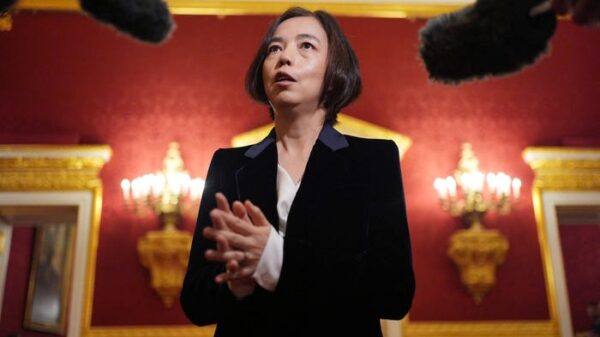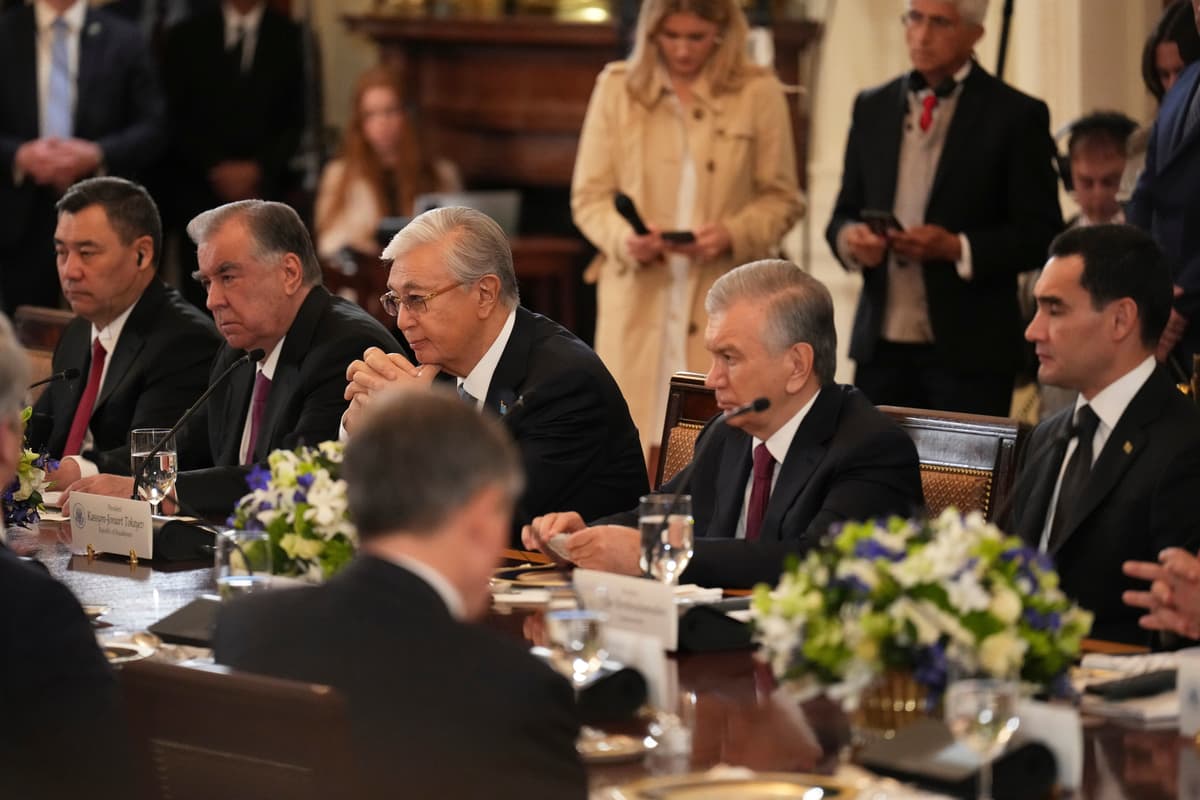Recent developments in international relations indicate a significant decline in Russia’s global influence. During a White House dinner, President Donald Trump hosted the leaders of five Central Asian countries, all former Soviet republics. Notably, Kazakhstan’s President Kassym-Jomart Tokayev expressed intentions to sign the Abraham Accords, a pivotal peace initiative involving Israel and Arab nations. Concurrently, Uzbekistan’s President Shavkat Mirziyoyev lauded Trump as the “president of the world.” These gestures underscore a waning of Russian power in the region.
As Russia continues to face challenges in its military engagement in Ukraine, speculation arises regarding the future of Foreign Minister Sergei Lavrov, who has held the position for over two decades. The prolonged conflict, which has now entered its fourth year, has hampered Moscow’s ability to assert its influence globally. Amid this backdrop, Azerbaijan’s President Ilham Aliyev welcomed NATO representatives, affirming that his military is modernizing to align with NATO standards.
In a notable diplomatic maneuver, Syria’s newly elected President Ahmed al-Sharaa is scheduled to meet Trump at the White House. Reports suggest that as part of a deal for the lifting of U.S. sanctions on Syria, the United States may gain access to an air base in Damascus. This follows al-Sharaa’s rise to power in December 2022, which saw Syria relinquish Russian control over significant military bases, including its only navy base in the Mediterranean.
The situation in the Americas also reflects shifting dynamics. The USS Gerald Ford, the world’s largest aircraft carrier, is en route to the Caribbean, marking the United States’ largest military deployment in the region since the Cuban missile crisis of 1962. In response, Venezuelan leader Nicolás Maduro has reached out to Vladimir Putin for military assistance. Despite a long-standing alliance, analysts do not expect substantive support from Russia, noting that Maduro returned from a recent visit to Moscow without new financial commitments.
Shifting to West Africa, the situation in Mali is deteriorating rapidly. The U.S. embassy has urged American citizens to evacuate amidst escalating violence from Al-Qaeda affiliates. The rebels have gained control over large swathes of territory, now threatening the capital, Bamako. The security crisis has worsened since a military coup in 2020, which ousted French troops who had been combating insurgents. In their place, Mali’s military leaders have employed Russian mercenaries, though the effectiveness of this strategy remains in question.
The French foreign ministry has criticized the growing reliance on Russian forces, with spokesperson Pascal Confavreux stating that the presence of Russian troops does not guarantee security for the Malian populace. Approximately 1,500 personnel from Russia’s Africa Corps are reportedly providing support to the Malian government, mirroring a pattern seen in neighboring Niger and Burkina Faso, where French military presence has been replaced by Russian soldiers.
Analysts are increasingly concerned that the instability in Mali could set off a chain reaction, potentially leading to the rise of Al-Qaeda influence in the region. The recent attack in Nigeria, where a rebel group killed a soldier and seized arms, marks an alarming expansion of hostilities.
These setbacks in Africa, Central Asia, and the Americas contribute to perceptions that Russia’s challenges in Ukraine are limiting its role as a global power. The fallout from Moscow’s foreign policy missteps has implications for Lavrov’s future, particularly following his absence at a recent meeting of Russia’s Security Council, a move interpreted as significant.
As The Moscow Times reported, Lavrov’s absence reflects a broader critique of Russia’s diplomatic strategies, which have increasingly isolated the country. This shift has heightened concerns about Russia’s ability to engage effectively on the world stage, especially as the geopolitical landscape evolves with new alliances forming between the United States and China.
In summary, the confluence of these events paints a stark picture of Russia’s declining influence as it faces multifaceted challenges from both within and outside its borders. The implications of these developments will be closely monitored by international observers as they unfold.





































































